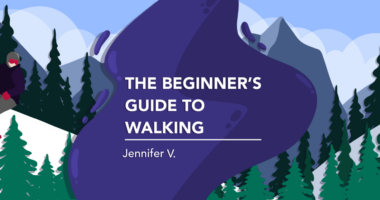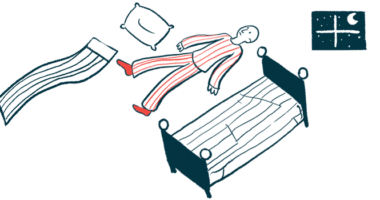After 14 years with NMOSD, I’m tired of it running things
Anticipating the future of my disease, even as my engagement with it skates by

When you’re newly diagnosed with a rare disease, you have no idea what you’ll need to endure for the rest of your life. The shock of the diagnosis takes up all your energy, and you’re forced to live in the moment. There isn’t time to think about your future.
I’ve had neuromyelitis optica spectrum disorder (NMOSD) for almost 14 years. I’ve likely had it for longer than that, but I never acknowledged the symptoms until the day when I had my first major attack. Fourteen years is a long time to be struggling with uncertainty, new medications, changing treatment plans, and endless bloodwork.
As I lay in bed the other day, I wondered how much longer I’ll be able to endure all of this. Lately, my pain is constant, especially the feeling of pins and needles in my extremities. I’ve been here before, in this much pain, but is this it? Does the rest of my life consist of pain management on a day-by-day, hour-by-hour existence?
Unless medical researchers find a drug that blocks this pain or a cure for NMOSD, this is it. It was an overwhelming realization that yes, this is what I’m signed up for, even though it was never my choice.
Committed vs. involved
I’m reading Humble the Poet’s book, “Unlearn: 101 Life Lessons Without the Bullsh*t,” which has small anecdotal memories that help make his points. In one of his thought-provoking stories, Humble writes, “Now things have evolved and the stakes are higher because this is my life and livelihood. My level of commitment is higher than it’s ever been because I don’t see myself turning around for anything. It’s this or the dirt.” Humble also shares a quote from an anonymous writer: “The difference between involvement and commitment is like an eggs-and-ham breakfast. The chicken was involved, but the pig was committed.”
I know I haven’t been an active participant in my healthcare lately. A case in point is how I’m always running out of my medication, then rushing to the pharmacy because my next dose is in an hour. I could do better with my medication management, like putting in calendar reminders for when my prescriptions expire, but I’m not that committed.
I’m so disinterested in NMOSD lately that my doctors had to remind me several times to get my bloodwork done. My nursing team reminded me that I wouldn’t get a prescription refill for my Enspryng (satralizumab) unless I completed the bloodwork. I did, but only on the week when I was due for my next injection. Because I’m only involved in my healthcare, not committed, I’m now going on Week 3 without the life-saving medication. And there’s no one to blame but myself. Darn.
This isn’t depression, but it sure looks like it.
I know I’m exhibiting telltale signs of depression, like disinterest and end-of-life contemplation. Depression and rare disease diagnosis go hand in hand like peanut butter and jelly. It’s a mainstay for most NMOSD patients, and I proactively seek mental health support before it’s too late.
The reality is this: Fourteen years is a long time for any relationship, including the one I have with NMOSD. It’s natural to want to focus on other elements of my life. I know NMOSD is committed to me, even if I’m just involved with it right now. What’s most unfortunate though, is that NMOSD demands it always be front and center or I don’t get to enjoy other things.
That’s the piece that’s difficult to articulate to the rest of the world. Living with NMOSD is like parenting a toddler; just when you think you got this, the kid throws a temper tantrum and there’s avocado all over your kitchen.
I’m curious what others think their future looks like with NMOSD, or if you’re like me and do your best to shelf the diagnosis. Please share your thoughts in the comments below.
Note: Neuromyelitis News is strictly a news and information website about the disease. It does not provide medical advice, diagnosis, or treatment. This content is not intended to be a substitute for professional medical advice, diagnosis, or treatment. Always seek the advice of your physician or other qualified health providers with any questions you may have regarding a medical condition. Never disregard professional medical advice or delay in seeking it because of something you have read on this website. The opinions expressed in this column are not those of Neuromyelitis News or its parent company, Bionews, and are intended to spark discussion about issues pertaining to neuromyelitis optica spectrum disorder (NMOSD).








Leave a comment
Fill in the required fields to post. Your email address will not be published.